Does The CW Have an Anti-black Problem?
Batwoman is canceled which makes another Black-led series The CW throws away. Does The CW have anti-black biases?
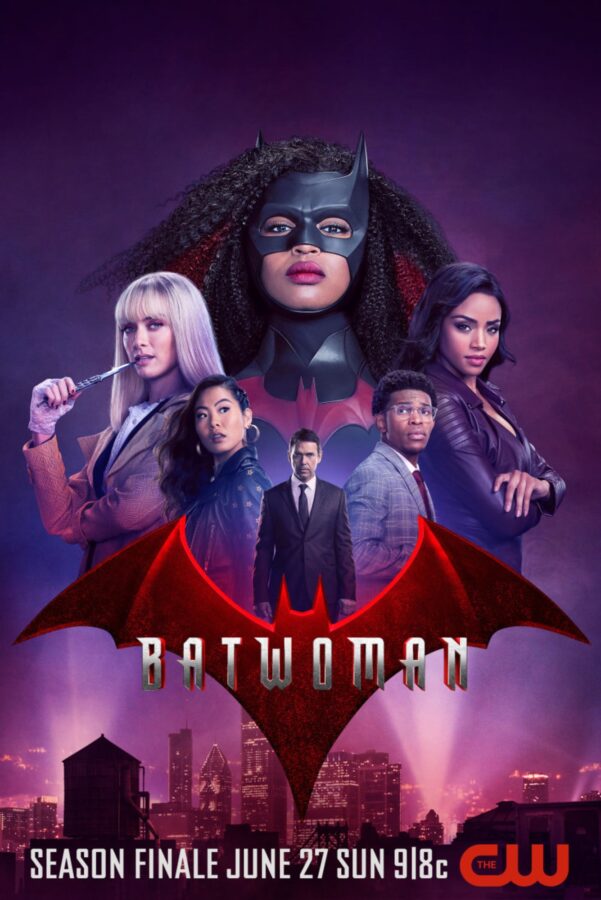
The CW is sending a toxic message that when things get a little too Black, they need to go. Also that they don’t want too many Black projects airing at once.
A Disclaimer
I’m pissed. So this will be a rant. It will go places and address The CW’s pattern with mistreatment of Black talent and projects. Obviously, there will be spoilers for Batwoman season 3 for those who would like to avoid spoilers. There will also be profanity.
Canceled When It Got Good
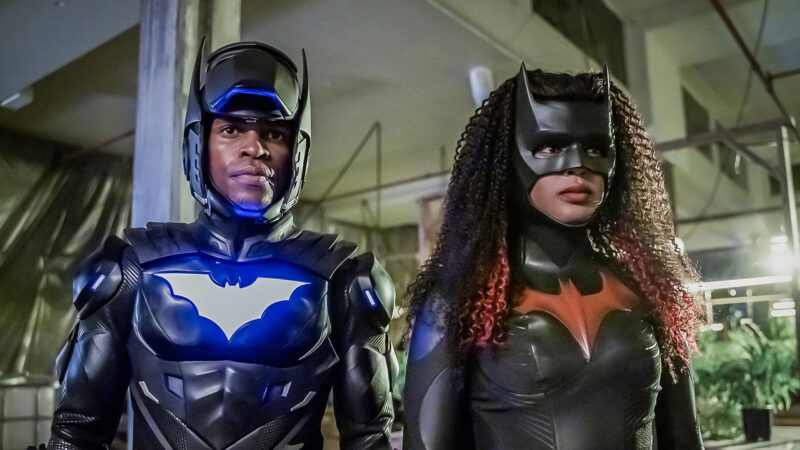
It is not lost upon me that Javicia Leslie, in some comment sections, has been called “the crybaby Batwoman“. And why might that be? Perhaps because the woman can convincingly convey an emotion. Antiblackness and misogynoir run rampant in CW fandoms (DC Fandome in 2021 being a prime example that I witnessed firsthand) as well as on the sets themselves behind the scenes. Leslie has been completely and utterly phenomenal in this role and such a breath of fresh air, the fact that people still need to find reasons to hate on her is quite telling and, unfortunately, expected. Ruby Rose in season one was easily the weakest link when it came to acting ability and the show was by far carried by the supporting cast. Leslie gave us a protagonist who could emote and whose face could give more than just a single look. But this isn’t about why Javicia Leslie was a better Batwoman than Ruby Rose, which is absolutely the case. This is about how The CW seems to really love canceling shows that feature primarily Black casts that don’t deserve to be canceled when they allow other less popular shows to continue.
The first half of season two suffered from very clumsy writing and poorly handled race topics and narratives. The “I am a number” speech comes to mind. But Leslie and the rest of the cast managed to keep my attention and I stuck it out. The second half of the season showed noticeable improvement: we did away with that weird white ex of Ryan’s (without killing her, thankfully, because even for the white gays, we don’t need any cases of Bury Your Gays). Instead, we saw the seeds for what The CW and most superhero fiction needed and was sorely lacking–a Black queer romance. But more on that later.
The initial half of season two also saw both pre-existing Black characters being dismissive and antagonistic towards the new Black woman protagonist, which was insulting, to say the least. The second half saw both parties develop organic connections to Ryan and helped the viewer understand where all three were coming from and why each thought and felt the way they did. A great and powerful moment was when Ryan, Luke, and Sophie, the three Black main characters, all discuss their unique perspectives on policing and being Black in a policing, anti-black world. Each also learned to understand the other’s point of view, even if they didn’t all completely agree. We saw the three develop genuine bonds of friendship as a trio as well as with their Asian friend and team member Mary, who also had unique connections individually.
The Ratings
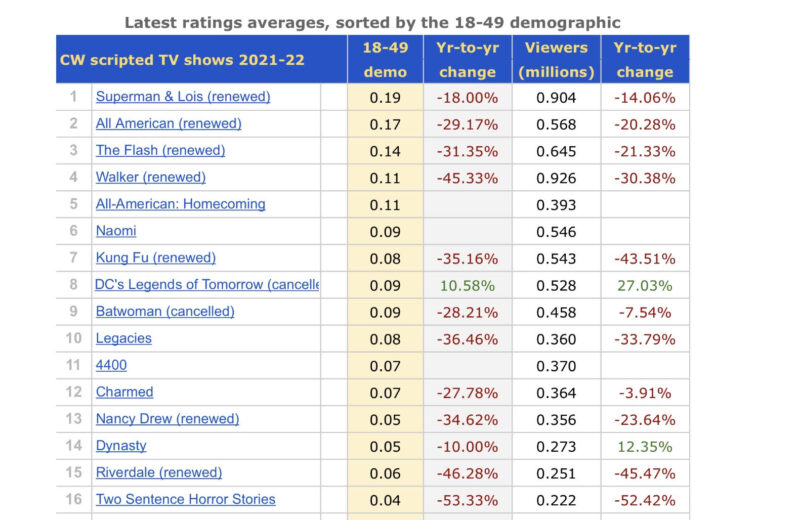
The ratings tell us that Batwoman, while not being the top performer, was also not even close to the bottom. So how is it that Riverdale and Nancy Drew, which both got less viewership can be renewed, but Batwoman gets cut? I won’t lie and say that I don’t still watch Riverdale, even though I should have given up a long time ago. But the previous season unexpectedly whipped out some truly amazing writing and excellent episodes and concepts starting with the Hiram Lodge flashback episode and continuing with the Josie and the Pussycats potential backdoor pilot episode. That being said, Riverdale would Riverdale again by doing nonsensical nonsense including a goddamned multiverse (spoiler alert, I guess, but who really cares). How can Riverdale continue with lower ratings, while Batwoman can be sent packing? It’s obvious as hell: it’s antiblack racism.
The CW, Antiblackness & Misogynoir
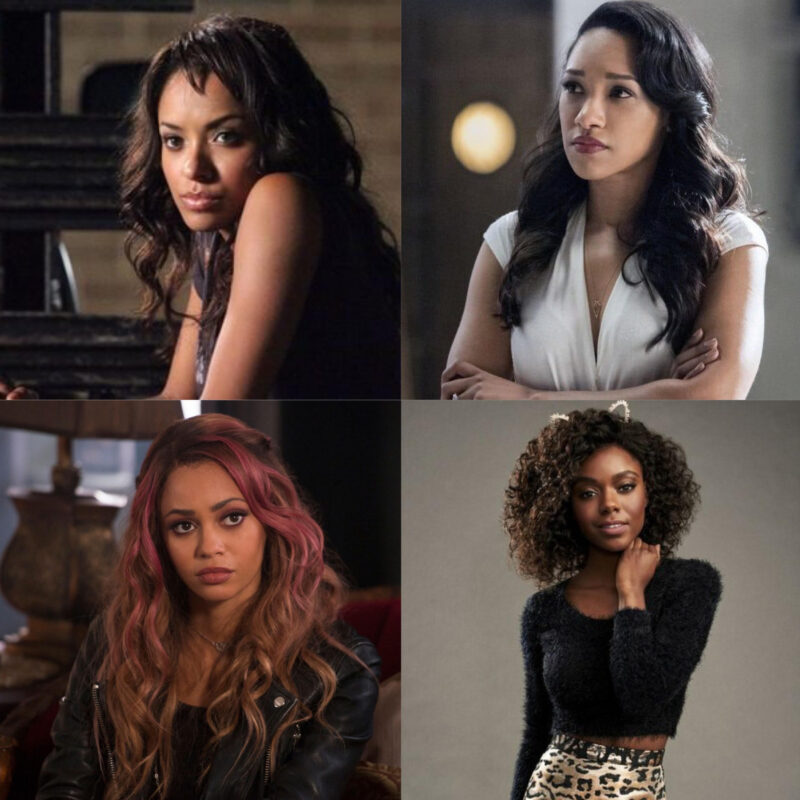
The CW needs to issue public apologies, specific ones, for each and every Black person they have wronged and failed to protect from racist trolling and toxic fan behavior, as well as blatant mistreatment committed by cast and crew on set behind the scenes. Let’s break down each of the ladies pictured as well as some others not pictured.
Kat Graham as Bonnie Bennett
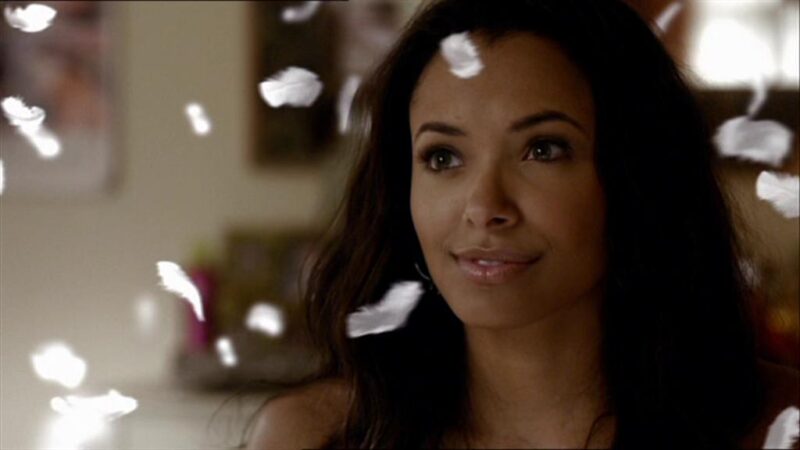
Kat Graham has been skewered by racist trolls in the Vampire Diaries fandom, disrespected by cast and crew as well as showrunner Julie Plec and executive producer Caroline Dries, both of whom did not allow Graham’s character Bonnie to explore a romance with fan-favorite Damon Salvatore which was canonical to the books just as show-darling ship Damon and Elena Gilbert were. Shippers of Damon and Bonnie, popularly known as Bamon, were interested in the ship because of the attention, focus, and development the ship would have given Bonnie’s character. But instead, Plec and Dries forced Bonnie to have love interests for whom she was their third choice (Jeremy had loved Vicki, then Anna, then Bonnie; Enzo was interested in Caroline, then Mama Salvatore, then Bonnie. These were her two greatest loves on the show and she couldn’t even be either of their first choices), and were both not as important to the narrative as a Stefan or Damon, or original Vampire (for those who shipped Bonnie with Klaus, Kai or Elijah). Even when Kat would simply address fans and Bamon shippers (and not even saying she was agreeing with them or endorsing Bamon), Plec and/or Dries would very curtly deflect away from the subject altogether.
Kat was not allowed to wear her natural, kinky hair on screen and most of the wigs they forced her to wear were unflattering. Graham, a singer, was also not allowed to sing on the show even when other actors with music backgrounds were given the opportunity. The male cast members such as the actors who played Alaric and Matt not-so-subtly expressed blatant anti-blackness, and in Matt’s actor’s case undercover antiblackness and antisemitism as Graham is both Black and Jewish. See all the gory details in this YouTube video.
Candice Patton as Iris West-Allen
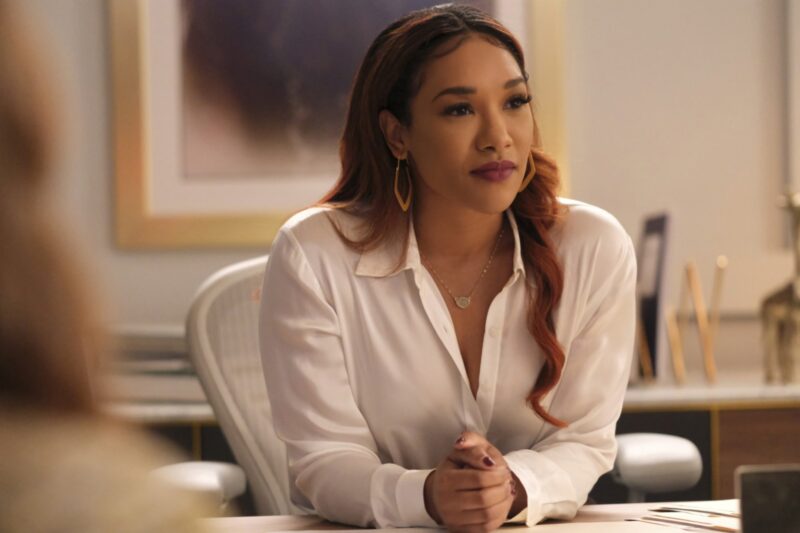
Candice is perhaps the best and clearest case of a Black person on The CW who has been mercilessly attacked by the fandom and has not been protected by the studio. When Hartley Sawyer was fired from his role as Ralph Dibney aka The Elongated Man on The Flash, cast members and the CW issued public statements condemning Sawyer’s resurfaced offensive tweets and comments, with the CW claiming not to tolerate such actions including racism. Keep in mind this was in 2021, post-George Floyd and Breonna Taylor political climate. Where were these statements and outrage when Candice was harassed and attacked from the moment she was cast before the pilot even aired? Why is it that now, of all times, the CW feels the need to make a show of support when they were happy to sit idly by and be silent when their actors have been mistreated by fandom, cast, and crew for years? What performative, fake-outrage, bullshit.
Candice has also opened up about her dismal conditions on set over her hair needs as a Black woman. Vancouver simply did not have salons available that suited her needs, as they clearly were not used to dealing with Black women’s hair, and Patton was forced to get it done whenever she got to return to L.A. during shooting breaks. The studio only reimbursed her once and told her she would have to find salons in Vancouver for further reimbursement. Chile, the caucasity! It’s giving: sounds like a you problem, Black girl… But it should have been taken into consideration considering she is literally their female lead. It is also the fact that it took seasons before Iris’ blackness could even be addressed, and where her unique Black perspective could even be gleaned. There is hope now that the show has a Black showrunner that Iris and Candice will continue to get better treatment and focus than we have been seeing lately.
The Black People of Riverdale
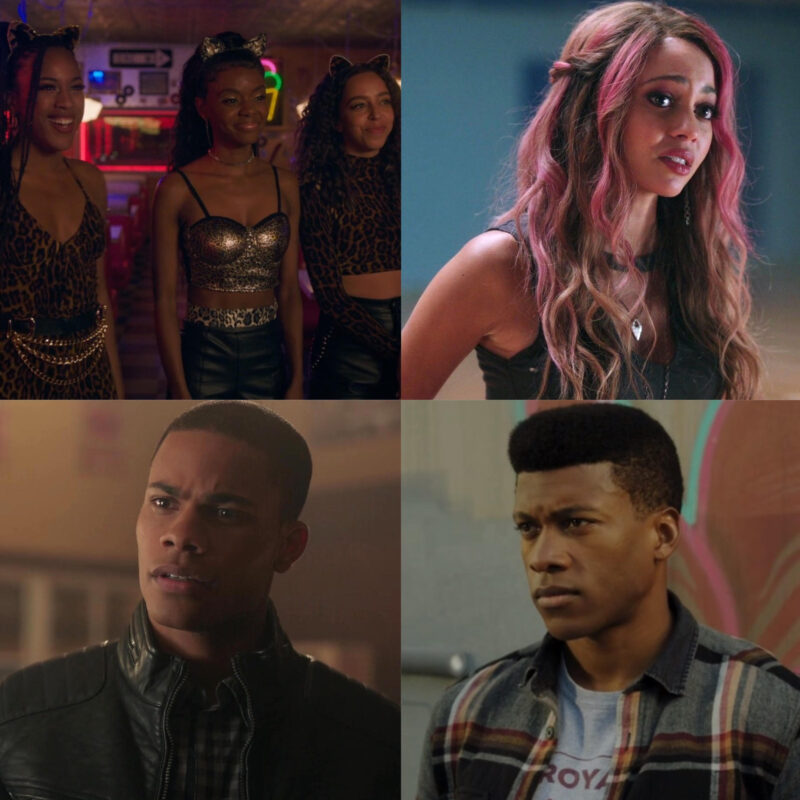
I have never seen a show where literally every single Black character has been disrespected in one way or another. But here we are. Josie McCoy, played by Ashleigh Murray, was a welcome casting choice because she is one of the darkest-skinned Black women I have ever seen on the CW who was a series regular. Unfortunately, season one saw Josie have very little screen time, in part due to the actress also filming a Netflix movie at the same time as filming Riverdale, called Deidra & Laney Rob a Train. So instead she was used sparingly while Valerie Brown, played by biracial actress Hayley Law got more attention and was Archie’s first real girlfriend on the series (who was his age, but this isn’t about Young/Faux Grundy and that fucked up mess). Law, while talented AF and gorgeous, was chosen to play Valerie, who canonically had dated Archie in the comics when it could easily have been medium-toned Asha Bromfield, who had ultimately been cast as Melody Valentine.
And while Law, though biracial, is still visibly Black, the optics of making a historically dark-skinned comic character light-skinned for the canonically interracial relationship was questionable at best. Even worse than Josie, who still got to speak and have some semblance of a storyline, it took two seasons for Melody to get lines, and even longer for any motivation or a personality. After sending Josie off to the doomed spin-off Katy Keene (which in and of itself should have been a Josie and the Pussycats spin-off in the first place! Plus the Katy Keene show ripped off several of Josie’s historical supporting and antagonistic characters from the Josie and the Pussycats comics to boot!), Josie and her original Pussycats, Melody, and Valerie returned for a rather good episode focusing on them. But at the time of this posting, we still don’t know if a Pussycats spin-off is truly in the works or not. But Riverdale and Roberto Aguirre-Sacasa have disappointed me for far too long, and so I won’t hold my breath.
Beyond the Pussycats, Vanessa Morgan aka Toni Topaz literally had to break her silence when she came to Ashleigh Murray’s defense against a troll claiming Murray was a “diva” and that’s why she didn’t get the treatment she deserved for her time on Riverdale. Morgan had to clarify how she herself, Murray, and every Black person on the show were hired to be sidekicks and to advance the storylines of their white costars. Toni at that point was the disposable love interest to Jughead before settling for a lasting position as Cheryl Blossom’s girlfriend and sidekick with little to no screen time or character development. It wasn’t until Morgan spoke out that Aguirre-Sacasa apologized and promised more storylines for Toni and eventually gave us the return of the Pussycats.
And yet Chuck Clayton, who was completely character assassinated as a slut-shamer and creep when he was the sweetest kid who created comics and had the only truly consistent and loyal relationship with longtime Black girlfriend Nancy Woods, has yet to return after vanishing from the show. Also mysteriously gone is Mad Dog, who was a juvie boxer who was a sidekick to Archie, joined Riverdale High, and was never seen or mentioned again. Black representation of Riverdale remains abysmal, though Tabitha Tate is alright, and Toni is doing better in the narrative.
Mechad Brooks as James Olsen
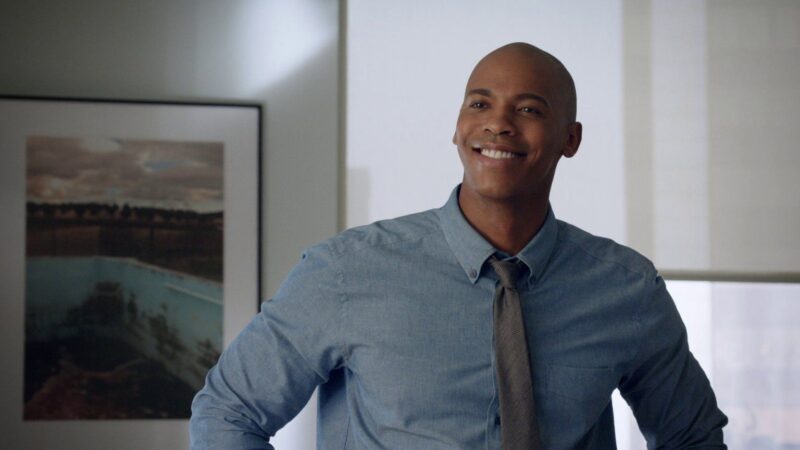
The fact that Mechad Brooks left the show on his own should have painted the clearest picture. He was meant to be the male lead of the show, and the main love interest of the protagonist. The Iris West to Barry Allen. The Lois Lane to Clark Kent. In the first season on NBC, despite some drama with both (mostly James) dating other people, it was clear that the end goal was to get Kara and James together. But literally, as soon as the show moved to The CW for its second season, literally the very second, Kara suddenly and inexpiably had no romantic interest in James whatsoever. Instead, we got one of the most obnoxious and unnecessary romances in all of the CW: Kara and Mon-El. All best wishes to Melissa Benoist and Chris Wood in real life, but there was absolutely no reason why their relationship needed to happen. It was so painfully obvious that Wood was cast to be the new, more acceptable love interest. Mind you, I don’t even particularly care for media, especially superhero media’s, obsession with swirls (especially when white and non-Black writers like to pretend Black people don’t like to be around or date other Black people), but I have to call racism when I see it, and this was racism, full stop.
As I said in a previous article about James, my theory is that in real life Benoist’s husband at the time, abusive piece of shit Blake Jenner, was likely jealous and paranoid about Benoist working alongside and playing a romantic opposite to a big, tall, muscular and incredibly attractive Brooks (especially given that they met on Glee where the two were in a love triangle where her main love interest was yet another highly attractive Black, though biracial, man). Benoist confirmed that Jenner would get jealous and possessive towards her even though her working alongside other men romantically was just acting. He even ended up joining the show during season one out of nowhere as a recurring love interest, likely to keep a closer eye on her. The season one finale saw Kara finally kiss James, which was delivered extremely awkwardly, apparently making some fans cool towards their potential as a couple. I believe that Benoist, under threat and insistence of her former husband, delivered that kiss in that way to help sink the Kara and James ship. And while Benoist was a victim and not to blame for such an action, unfortunately, it was the beginning of the end for James Olsen and his significance as a character on the show. From season two on, James got less focus despite getting promoted in his career and his storylines were very poorly crafted. In fact, most of the best writing didn’t even go to Benoist, the star herself, but to fan-favorite Alex Danvers.
Just When We Got Our Live-Action Black Queer Romance in a Superhero Show…
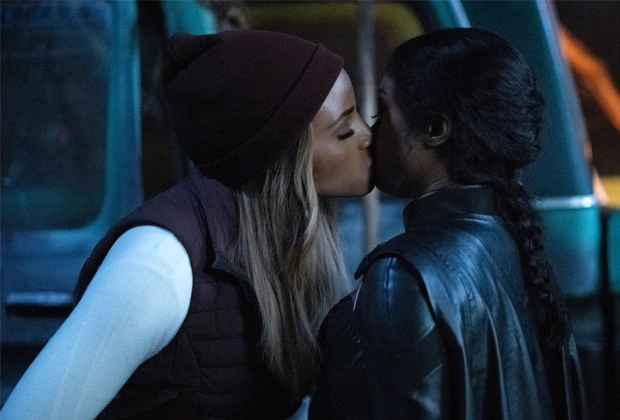
I knew all along that Batwoman was being run by showrunner Caroline Dries, the very same Caroline Dries who helped make Kat Graham’s time on (and my time with) The Vampire Diaries a living hell, but I also knew I had to support this beautiful Black woman in this important role. I was also wary of the fact that Ryan would be an ex-con. It felt stereotypical and trite. I still felt that using the Tiffany Fox character from the comics, who was Luke Fox’s sister and a Batgirl, would have been the most seamless way to include her into the show and into the cowl, but I decided to support nevertheless. And while the first half of that second season was rough mostly in terms of the writing and race theory, Javicia was an absolute delight and a joy to watch. It also is not lost on me that as my friends and I discussed our issues on Clubhouse in the My Superheroes Are Black club when one of the show’s writers would enter our room and heard what we had to say. And what was one common thing we had said? We were tired of the CW and superhero content in general never allowing any queer Black characters to be with anyone else Black. There was literally not one Black queer couple at the time in 2021. Every Black queer character would be in a swirl, and nine times out of ten a Black and white swirl.
So you can imagine my delight when we finally got Wildmoore becoming canon: Sophie and Ryan finally got together. I also appreciated that it didn’t happen right away and that it took time for the two to respect, trust and develop a genuine friendship before we got some flirting leading up to more and more overt tension before they finally told others they liked each other before telling each other and getting together. Black queer romance in superhero content is not only largely absent in the CW and live-action, but even in DC and Marvel Comics. The only one I know of in the comics is Ayo and Aneka in the World of Wakanda Marvel comic in 2017.
I refuse to watch Peacemaker for reasons I won’t get into here (I’ve ranted enough, tbh) but am told that Danielle Brooks (who I adore, btw and almost watched the show just for her) plays a lesbian character whose partner is a biracial Black woman. And while that’s great for the people watching and enjoying that series, I doubt that Brooks’ character’s partner is also a main character the way Sophie and Ryan were both main characters on Batwoman. While I’ll absolutely root for Black queer love wherever it may arise, I also hope that future projects will consider putting two characters of equal or similar narrative weight to have romances together, for it’s far easier to make a partner we don’t see much of being visibly Black. Unironically, those same characters are known as the Disposable Black Love Interest (though the term generally is used for non-Black leads or main characters and additional or secondary love interests who are not meant to be the main love interest, a la Aisha Tyler on Friends or Jordan Fisher in the movie To All The Boys: P.S. I Still Love You).
All the Wasted Potential
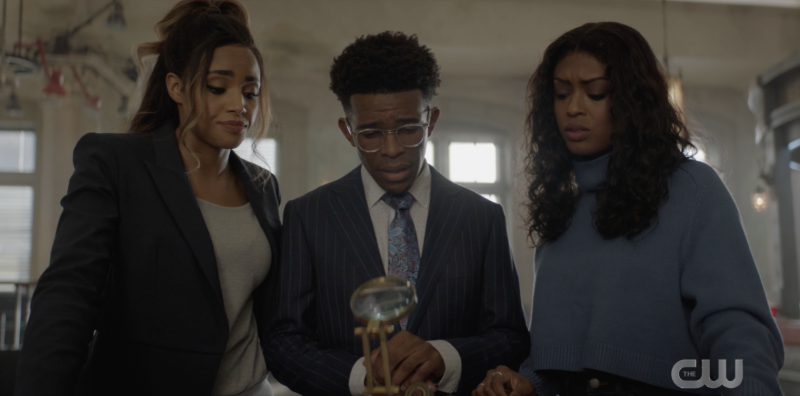
As mentioned previously, the show did a very good job at giving us three main Black characters with contrasting backgrounds, motivations, and personalities but a common goal. Initially seeing both Luke and Sophie mistrust and underestimate Ryan was very frustrating to watch. It is never fun to see Black people, especially if they are the only Black people in a given space, not getting along. Seeing both Luke and Sophie both understand and learn to love and trust Ryan was extremely satisfying, and seeing the three bond and develop a rapport as a trio was heartwarming. Even when Mary, the Korean member, was initially the only member of the team who believed in Ryan from the beginning, it was interesting seeing how that shifted when Mary felt she wasn’t being heard or considered anymore, which led to her villainous foray in season 3 when she was infected with poison ivy and became a metahuman just like Pamela Isley aka Poison Ivy.
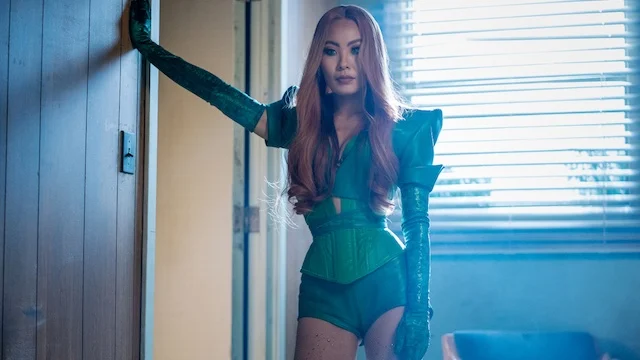
The change in relationship dynamics was exciting and shook things up. Orderly and responsible Mary who was at first the only advocate for Ryan, became unpredictable and self-serving, also working with her formerly-loathed adoptive sister Alice. Despite not growing up with Alice and Alice being the person who killed her mom in season one, Mary, as a doctor, was able to recognize the human and the victim in Alice, while also not discounting the wrong she did in conjunction with her trauma. Alice, having no more family aside from Mary, really stuck by her sister’s side when she could have escaped at any time. Their scenes together as well as all of their complicated feelings towards each other were among the highlights of the season.
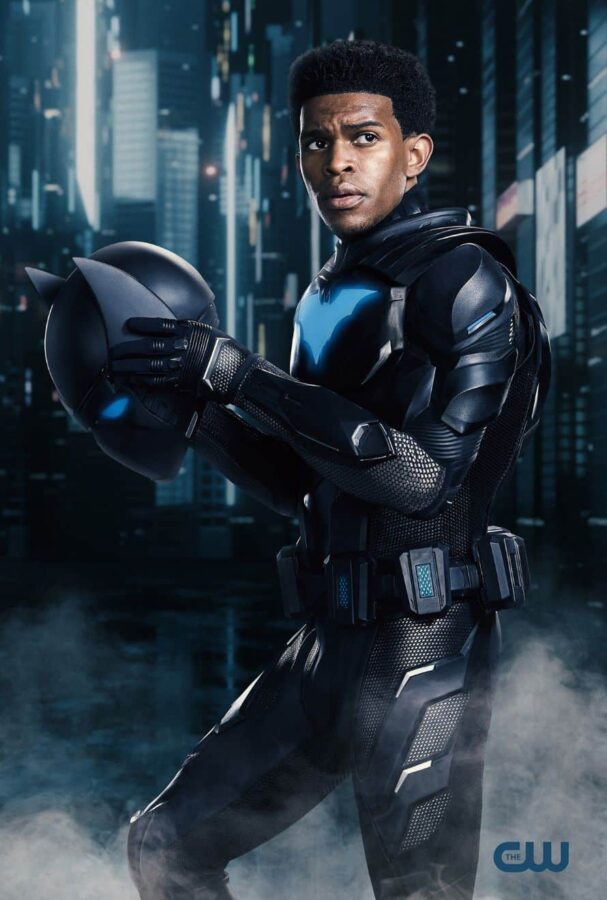
And in speaking of trauma, it was beyond a delight to witness Luke’s journey toward finally becoming Batwing and dealing with the limitations of his PTSD from being shot the previous season by a crooked officer. Not to mention everything having to do with his father. It is always refreshing to see a Black man who had a love and reverence for his father. It is often the stereotype (and unfortunate reality for many) that Black men don’t have good relationships (if any) with their fathers, so it’s always nice to see whenever one clearly loved theirs, even if they also had some complicated feelings mixed in. It was clear, much like eventually between Sophie and Ryan, that Luke and Mary were destined to get together, and it would have been one swirl I wouldn’t have minded. The two worked well together for a long time and an Asian and Black swirl is miles better than a Black and white or Asian and white one, both of which are depicted far more often. Also, Mary was the clear choice rather than the inexplicably redheaded Stephanie Brown (that Tim Drake’s boo!) from the previous season.
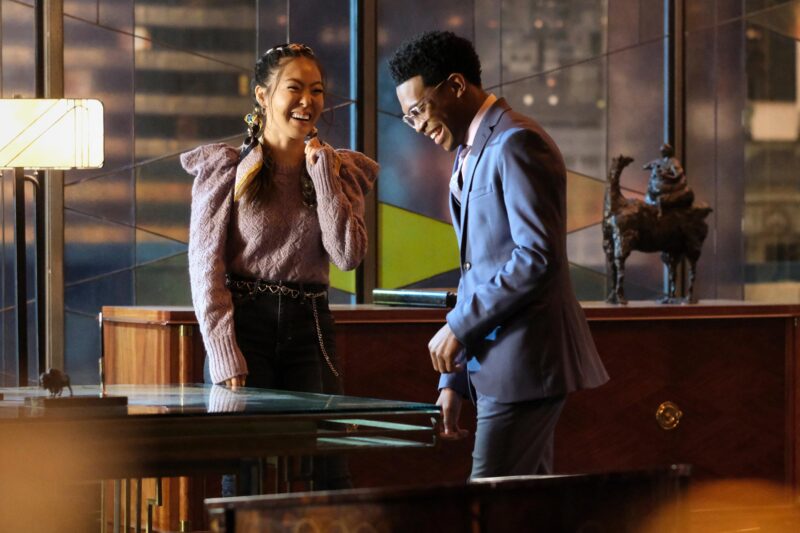
And So…
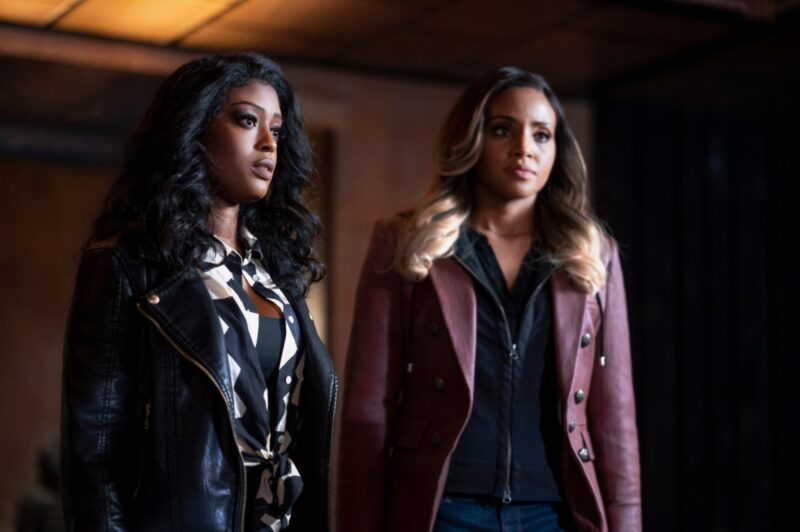
Batwoman was a legitimately good show overall after the initial snafu with the first lead who couldn’t really act in the initial season, and then the hiccups of the first half of the debut of the far stronger lead by the second. They gave us not only our first impactful Black queer couple but of unique Black friendships between three very different Black people with different ideologies, shifting allegiances, and the dangers of not appreciating your friends as assets. Not to mention the growing, and very complicated, conversations around mental illness with Alice’s character. Do we vilify her for her misdeeds and murders? Do we take her extreme trauma into consideration? Alice’s low-key redemption arc, or at the very least quest for the easy way away from her madness, was both touching and extremely tragic, for we all knew there was no way she was going to be allowed to easily be freed of her Alice persona and become Beth Kane again. Even from season one, Rachel Skarsten was an absolute chaotic joy as Alice, but more and more we saw how humor and badassery seemed to serve as a veneer of sorts for the pain under the surface, which seemed to reach its apex in season 3 as she desperately tries to find a way to instantly cure herself of her insanity.
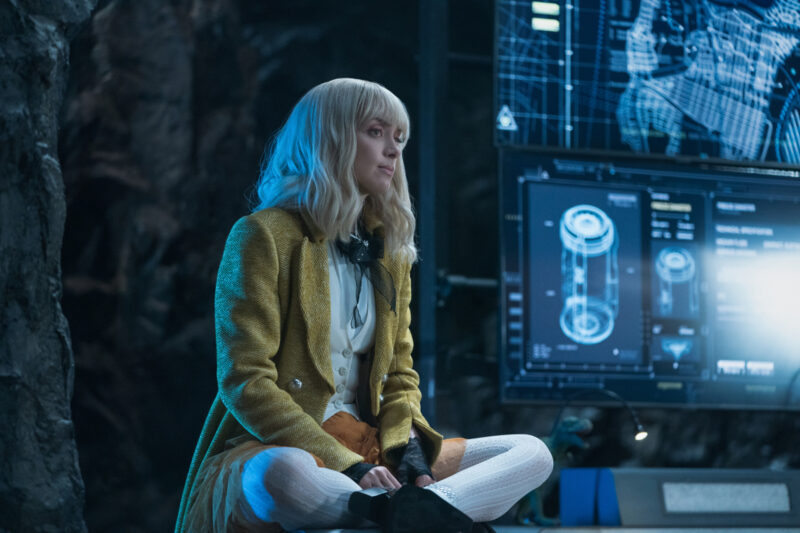
Robin Givens and her performance as Jada deserves praise as well. I wasn’t reading Batman comics when her comic counterpart Jezebel Jet was introduced, but from the pics I have seen, Givens’ initial scene as Jada was scarily accurate, down to her facial expressions, body language, and overall vibe. Jada being complex and a woman trying to save her son was a welcome twist, as well as her being Ryan’s birth mother. I loved seeing how their dynamic progressed. Marquis was also well-performed, though not as much fun as Alice at her best and worst, but nevertheless, he served his function well as the motivator for Team Batwoman and Jada to save his soul and stop him as a threat at the same time. I personally felt his proto-Joker was not as fun as Mary’s proto-Poison Ivy, especially when she worked with Alice, and I wish Mary had gotten more time in that role before being restored to her usual self. Nevertheless, Marquis and his plot were still interesting. Batwoman, while not perfect as this was still the CW, still had a lot to give and so much potential. If so many of these other, frankly inferior shows, can get renewed, and some renewed for so long, then Batwoman deserved to go on.
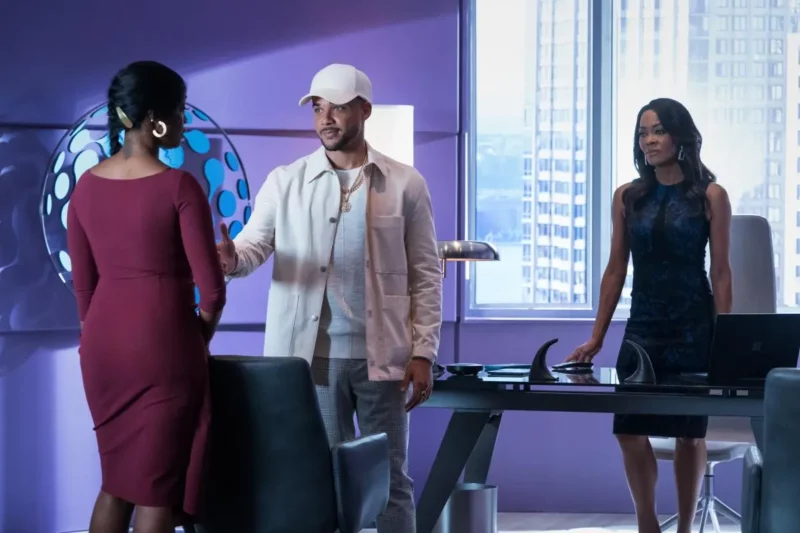
This cancellation was racist. Yeah, I said it. They pass on the Painkiller spin-off and don’t do any spin-offs for Anissa Pierce with Grace Choi from Black Lightning. The CW likes to only have so many Black shows at once, and the shows they like to keep are not good or are not as good as they once were. The good stuff gets dropped, but crap gets to stay. It’s giving… scheme. It’s giving strange tactics. But above all, it’s giving antiblack racism, homophobia, and misogynoir. This was a bullshit move, CW. If this series is not saved by another network (I will gladly sign any petition to make it happen) or the actors do not immediately get better work, then I just might have to finally make my break with this cursed studio.
Be the first to leave a review.
Your browser does not support images upload. Please choose a modern one
I identify as a womanist. I also identify as both gay and queer. I am gender fluid and respond to he/him, she/her, and they/them. I am a Black American-Descendant of American Chattel Slavery who is pro Black Diaspora and pro creating Global Black Strongholds (Blacks across the Diaspora holding it down in each region to allow all Blacks to go to each, and be safe and in community together). I am a comics, tv, movie, and video game stan. My expertise for comics and related media are DC Comics, Marvel Comics, Archie Comics, and a little bit of others here and there, but I'm hoping to branch out to other, Blacker and indie comics and related content. I'm a binge watcher and can talk about shows and movies for days. You can find me on YouTube and various other social media platforms as thaboiinblue.

4 Comments
Leave a Reply
Cancel reply
Leave a Reply
This site uses Akismet to reduce spam. Learn how your comment data is processed.
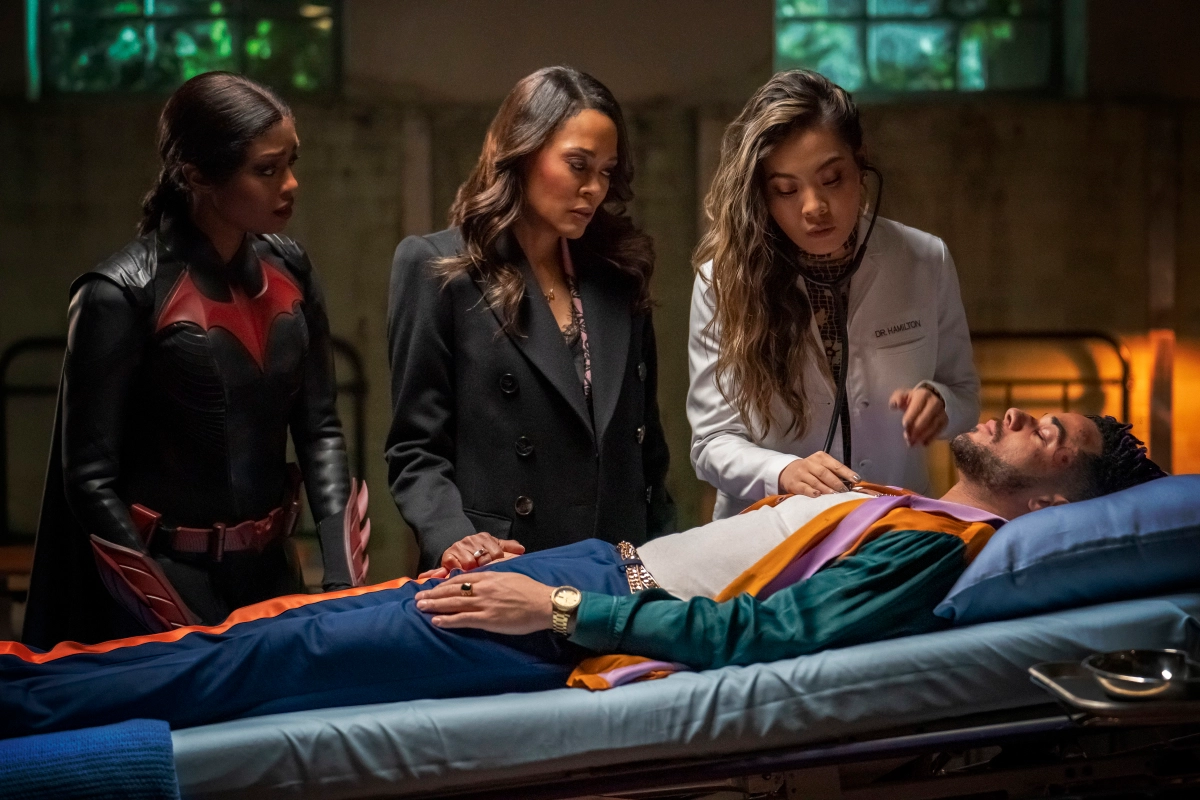
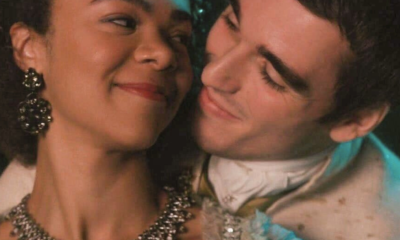

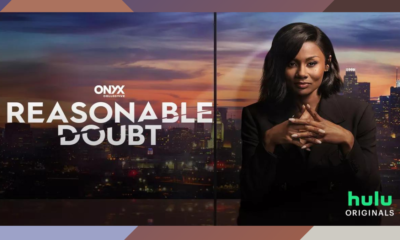



















Pingback: Black LGBTQIA+ Representation in Superhero Shows, Is It Well Done?
Pingback: Comics and Beyond: Just Stop Complaining About Women Characters Being Too Powerful
Larry
September 26, 2022 at 12:36 PM
Don’t forget Black Lightning, another great show to get the axe.
Pingback: David Choe's misogynoir is the new social currency in Hollywood